25, July 2018
France’s Benalla affair: Timeline of an Élysée Palace scandal 0
Since news surfaced that a top security aide to French President Emmanuel Macron was filmed assaulting protesters on May Day, it has dominated France’s headlines in the most damaging crisis yet for Macron. FRANCE 24 takes a look back.
May 1: Violence mars the traditional May Day labour union rallies in Paris. Alexandre Benalla, a top security aide to President Emmanuel Macron, spends his day off tagging along with law enforcement to observe their operations. Footage posted to Twitter at 8:17pm shows Benalla, wearing a police armband, manhandling a woman and striking a man protesting on the Left Bank’s Place de la Contrescarpe. But the 26-year-old Benalla, his face partially obscured by a protective police helmet with visor, will not be identified publicly until July 18, when Le Monde breaks the story.
May 2: Behind the scenes, the incident is a hot topic. Paris’s police chief learns of the video in the morning from an Élysée Palace staffer and Interior Minister Gérard Collomb learns of it after lunch, they will later say.

May 3: Patrick Strzoda, Macron’s chief of staff, addresses a formal letter to Benalla notifying the aide that he will be suspended for 15 days, from May 4 to May 19, for his “manifestly inappropriate behaviour” on May 1. “Your behaviour causes harm to the exemplary character expected, in all circumstances, of agents of the French presidency,” Strzoda writes, adding a warning that a subsequent lapse in exemplary behaviour would result in Benalla’s termination.
Headline news
July 18:Le Monde identifies Benalla as the helmeted man in the May Day video assaulting two protesters. The newspaper also publishes comment from Macron Chief of Staff Strzoda confirming he had been informed, that he had immediately informed Macron who was travelling in Australia at the time, and that Benalla’s punishment included a 15-day suspension without pay and a demotion to an administrative role.
Le Monde notes that Benalla remains a chargé de mission to the president and, although relegated to an administrative role handling security for events inside the Élysée Palace, worked to secure the July 14 Bastille Day parade and France’s July 16 World Cup victory parade, both held nearby on the Champs-Élysées.
July 19: Élysée spokesman Bruno Roger-Petit in a taped statement calls the punishment “the most serious sanction ever pronounced against a chargé de mission working at the Élysée”. The remark about Benalla’s punishment is roundly mocked, given that past Élysée staffers have been sacked for faux pas when Benalla, controversially, had not.

Roger-Petit also says another man shown alongside Benalla in the video, Vincent Crase, an employee of Macron’s La République en Marche party, was notified that he would no longer collaborate in any way with the president.
Refusing to answer reporters’ questions on the growing Benalla scandal himself, Macron addresses the affair in a single phrase. On a visit to Périgueux – where the French president is inaugurating an updated portrait of Marianne, the symbol of the French Republic that graces France’s postage stamps — Macron is asked whether the Benalla affair had sullied the Republic. He replies: “No, no, no, the Republic is unshakeable.”
Also on July 19, the Paris public prosecutor’s office opens a preliminary inquiry into the May Day incident. Meanwhile, Interior Minister Collomb refers the case to the Inspection générale de la police nationale (IGPN), the disciplinary body that looks into police wrongdoing, in a bid to determine how Benalla and Crase wound up in the field alongside law enforcement on May Day.
Three Paris police prefecture staffers are suspended for having passed along videosurveillance footage of the May 1 incident to Benalla.
The lower-house National Assembly’s Law Commission calls a month-long commission of inquiry to shed light on the events of May 1.

Fired and detained
July 20: The Élysée Palace announces it will fire Benalla, saying the decision is based on new information. “In order to prove his innocence, Monsieur Benalla is said to have received a document from the police prefecture that he was not authorised to have in his possession,” it says, in apparent reference to the videosurveillance footage that saw the three police officers suspended.
Minutes after the Élysée’s announcement, news breaks that Benalla has been taken into police custody for questioning. Vincent Crase is also detained.
The Senate’s Law Commission calls a six-month commission of inquiry into the May Day incident.
Changes of plans
July 21: The three suspended police officers are also taken into custody for questioning.
Benalla’s apartment in Issy-les-Moulineaux, a Paris suburb, is searched by police. Still detained by police, the disgraced aide reportedly has to cancel his wedding, planned for Saturday, July 21.
An evening session of the National Assembly debating the government’s controversial constitutional reform bill is cancelled after heated arguments break out over news that Benalla had a badge giving him access to the chamber.
July 22: Benalla, Crase and the three suspended police officers are placed under formal investigation. The Paris prosecutor’s office says Benalla will be investigated on counts of group violence, interference in public service, the illegal wearing of a police badge and complicity in the unauthorised use of surveillance footage.
Justice Minister Nicole Belloubet announces that constitutional reform debate will be suspended, to be taken up again “at a later time in more serene conditions”. (It is ultimately postponed until September, at the earliest.)
Macron meets with his prime minister, interior minister, government spokesman and state secretary for parliament over the Benalla affair. Through an intermediary, the president condemns Benalla’s “shocking and unacceptable behaviour”, says there had been a series of dysfunctions at the Élysée since May 1 and charges the presidency’s secretary general, Alexis Kohler, with working on an internal restructuring “so that it cannot happen again”.
In the hot seat
July 23:Hearings begin in the National Assembly’s inquiry into the Benalla affair with lawmakers questioning Interior Minister Collomb and, later, Paris Police Chief Michel Delpuech. Neither man had known beforehand that Benalla would shadow officers on May Day, they each tell a packed committee room. Both trusted the Élysée to take appropriate measures to sanction Benalla, they tell the inquiring lawmakers.

July 24: Prime Minister Édouard Philippe defends the Élysée’s handling of the May Day incident, telling lawmakers on the floor of the National Assembly, “Nothing was covered up, nothing was omitted.” While accepting there may be questions as to the “proportionality” of the punishment handed down for Benalla, Philippe says the “swiftness” of the response is “not contestable”.
Chief of Staff Patrick Strzoda acknowledges he imposed Benalla’s suspension as well as a “demotion” that involved stripping him of responsibility for some elements of the president’s security. He says that since no complaint was filed against Benalla, and that an analysis by the national police oversight body had not flagged any irregularities, he did not see any need to inform prosecutors.
The first poll released since the scandal broke shows favourable opinions of Macron down four points since June to 32 percent, despite France’s intervening feel-good World Cup win. The Ipsos poll puts the French leader at his lowest approval level since September 2017.
Source: France 24
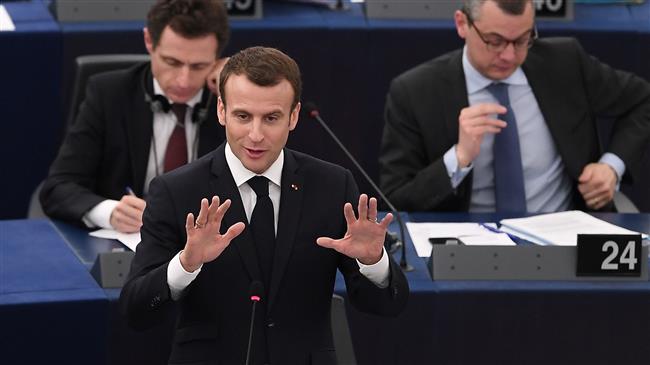


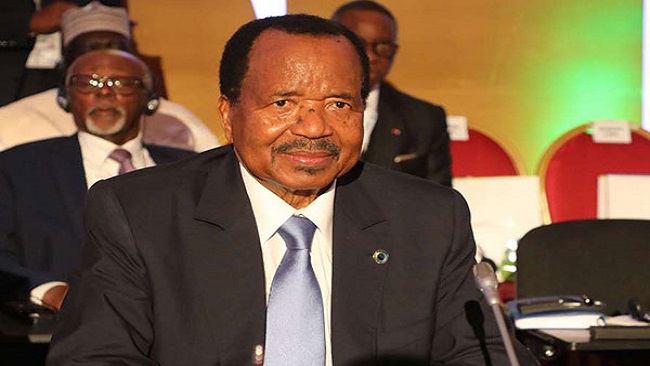


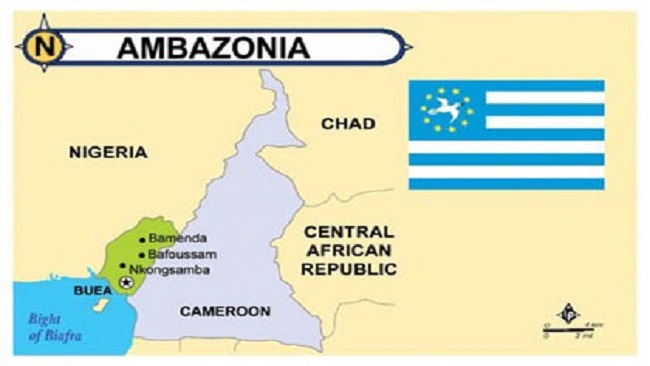
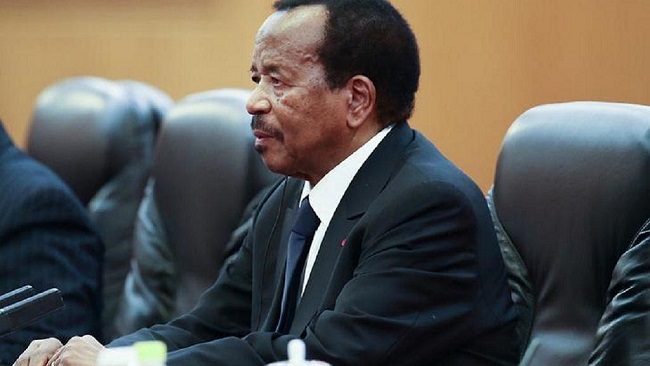
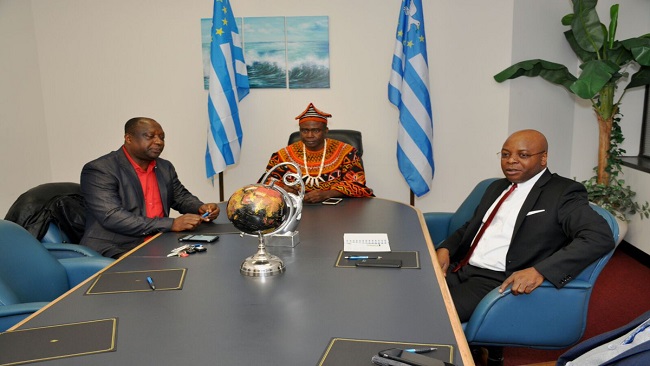
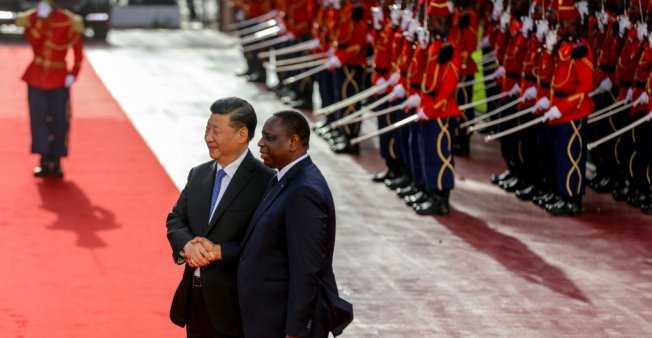
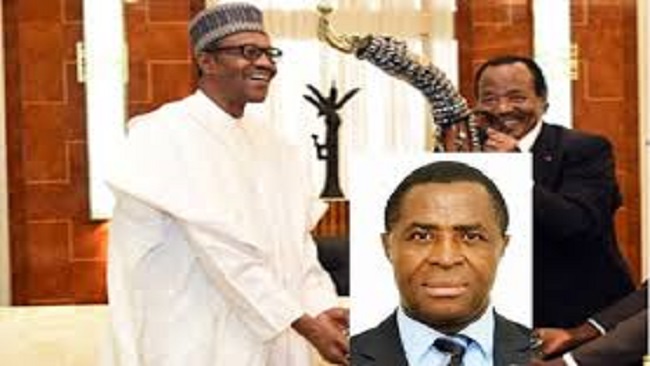












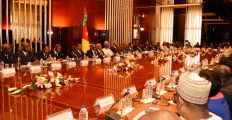




25, July 2018
Jerry Rawlings Condemns France, Intl. Community Blind Eye to Southern Cameroons Sufferings 0
Former Ghanaian Head of State Jerry Rawlings has criticized the international community for turning a blind eye to the plight of Southern Cameroonians, urging France and the European Union to unite in support of the persecuted English speaking minority in Cameroon.
The senior Ghanaian citizen made the comments at a special edition of GUBA Awards 2018 in Ghana recently. He condemned the global media blackout on the sufferings of Southern Cameroonians, saying horrific images of the killings in Ambazonian of women and children have made no headlines in media worldwide.
The Great JJ also censured the international community’s indifference to the plight of Southern Cameroonians and called on the United Nations to focus on the crisis gripping the English speaking community in Cameroon.
Southern Cameroonians have been deprived of their inalienable rights while facing systematic discrimination, violence and hatred from the Biya regime. Rawlings further urged the French government to pressure Biya’s government to respect Anglophone rights, advocating for the urgent dispatch of humanitarian aid to the internally displaced Southern Cameroonians inside Cameroon and those forced to take refuge in neighboring Nigeria.
Rawlings urged the Biya Francophone regime to end its crackdown on Southern Cameroonians. Many Southern Cameroonians have suffered appalling deaths, and those that have lived through the atrocities have witnessed or endured unspeakable cruelty.
The Southern Cameroons community is one of the most persecuted minorities in Africa. Some 161,000 Ambazonians are languishing in displacement locations in French Cameroun since President Biya declared war against the English speaking community in Cameroon.
The French Cameroun army has carried out several operations in Southern Cameroons, home to about 8 million English speaking Cameroonians. For over two years now, there have been numerous reports of arbitrary killing, rape and other atrocities against Southern Cameroonians at the hands of troops loyal to the Biya Francophone regime. At least 50,000 Southern Cameroonians have fled to neighboring Nigeria in the face of the crackdown.
By Soter Tarh Agbaw-Ebai